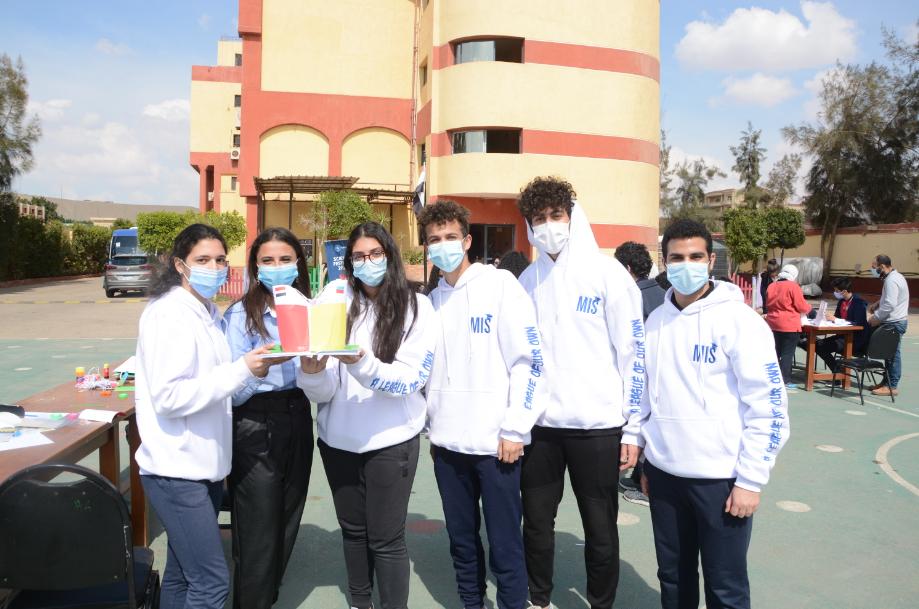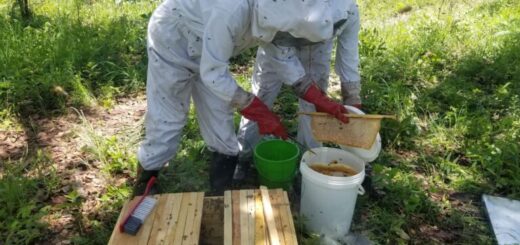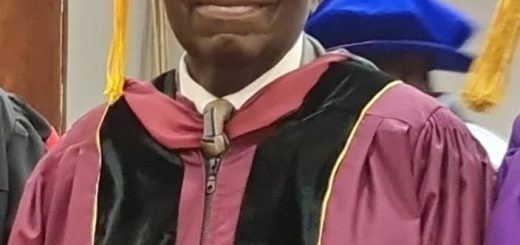Rosatom’s First Science Festival Week Successfully Concluded
Notice: Undefined index: catFilterList in /home/zambi/public_html/wp-content/plugins/wp-likes/api.php on line 243
Rosatom’s First Science Festival Week Successfully Concluded
Scientific and educational events took place throughout the week in Cairo and Alexandria
Cairo, Egypt – 25 February, 2021 – The global technology leader, Rosatom, successfully concluded its first Science Festival Week in Egypt. It was co-organised by the Russian Centre for Science and Culture, and took place in Cairo and Alexandria from 21-25 February 2021.
Throughout the festival, Russian and Egyptian nuclear scientists and experts visited Cairo and Alexandria-based schools, where they made presentations about different peaceful applications of nuclear technology. Students were able to learn more about how nuclear technologies directly help to solve challenges the humanity are facing and benefit people’s live, at the same time as facilitating the achievement of the UN Development Goals of affordable energy, quality education, economic growth, scientific breakthroughs.
Over the course of the festival, the students of Menese International School and Princeton International school in Cairo and Elite International school in Alexandria were engaged in a number of games and lectures aimed at exploring nuclear industry and science and busting common myths and stereotypes about nuclear technologies and radiation.
In Cairo, festival participants paid a visit to the Museum of Egyptian Antiquities, where they learned more about radiocarbon analysis, radiation disinfection, sterilisation, and data science that are used to preserve antiquities and identify the exact age of monuments that students got to see during the tour. In Alexandria participants were able to learn more about how nuclear science contributes to the preservation of books and transcripts that were demonstrated during a visit to Bibliotheca Alexandrina’s Antiquities Museum. Participants also discussed topics such as science, engineering, technology, and the peaceful use of nuclear science.
The closing ceremony took place on the grounds of the Russian Centre for Science and Culture in Alexandria. The event was officiated by the Head of the Russian Centre for Science and Culture in Alexandria, Marat Gatin. Students from Alexandria-based universities and schools attended the event along with their parents.
Among the Russian experts who participated in the Science Festival Week was Dr. Egor Zadeba, an associate professor at Russia’s National Research Nuclear University MEPhI (Moscow Engineering Physics Institute) who delivered lecture on higher education opportunities in nuclear studies at Russian universities and explained the application and admissions process. He was directly involved in all the activities during the week as an expert and pinpointed high potential of Egyptian children. He also expressed hope the Week ignited their interest in science that will allow to better understand how to confront current challenges and to consider science and nuclear engineering as their future profession.
During the closing ceremony, the audience watched a documentary on the threats humanity face worldwide and the role of science and nuclear technologies in overcoming them. Rosatom also presented another unique documentary called ‘Atoms for Humanity,’ which presented simple human-interest stories on how nuclear technologies are transforming people’s lives and changing their cities and regions for the better.
All events complied with social distancing recommendations and all other measures introduced by the government of Egypt to fight COVID-19.
Grigory Sosnin, Vice-President – Director for El Dabaa NPP Construction Project, the Engineering Division of Rosatom State Corporation commented: “Such events give us the opportunity to tell the younger generation what nuclear power is, how nuclear power plants work, and what benefits nuclear power and nuclear technologies bring. The acquired knowledge removes different phobias and allows us to better understand each other and form trusting relationships”.
Comments of participants of the Festival:
Nashwa Eladl, High School Coordinator at the Princeton School said: “We are proud of the collaboration between our country and Russia. Our science teachers and students were excited to further discuss the new topics presented to them during the Science Festival. Now we will be able to integrate the information we learned into our curricula to create an even more well-rounded academic program.”
Farida Mohamed Ragaai, a 9th grade student at Menese school, said: “The science festival has given us much information over the past few days. We were so happy to learn more about nuclear energy and it has positive effects on our community.”
Dina Muhammad, a senior at Women for Science faculty at Ain Shams University, said:
“It was a very interesting event that offered much information about applying to study in Russia, especially, for nuclear science. I hope that we have more events like these in the future.”
Rosatom’s Science Festival is held in many countries that are developing nuclear industries, including India, Bangladesh, Uzbekistan, and Belarus.
Rosatom is currently implementing the El Dabaa NPP project – Egypt’s first NPP project – near the town of El Dabaa, in the country’s Matrouh Governorate, approximately 300 km northwest of Cairo. The plant will feature four VVER-1200 reactor-equipped power units featuring a unique combination of active and passive safety systems, making Egypt the only country in Africa to operate Generation III+ reactors. Currently, there are four such power units successfully operating within Russia: two at Novovoronezh NPP and two at Leningrad NPP. Outside of Russia, one VVER-1200 reactor-equipped unit of Belarus NPP was connected to the grid in November 2020.
About ROSATOM
ROSATOM is the only company in the world that has the resources and competencies to offer energy solutions across the nuclear supply chain. It possesses a wide range of assets, including assets in design, construction and operation of nuclear power stations, uranium mining, conversion and enrichment, supply of nuclear fuel, decommissioning, spent fuel storage and transportation and safe nuclear waste disposal. Rosatom is also engaged in the production of equipment and isotope products for the needs of nuclear medicine, scientific research, and materials science, and in the production of digital and of various nuclear and non-nuclear innovative products. The company’s strategy is to develop low-carbon power generation projects, including in the field of wind energy generation. Today, Rosatom brings together over 300 enterprises and organisations and employs over 250,000 employees.



















